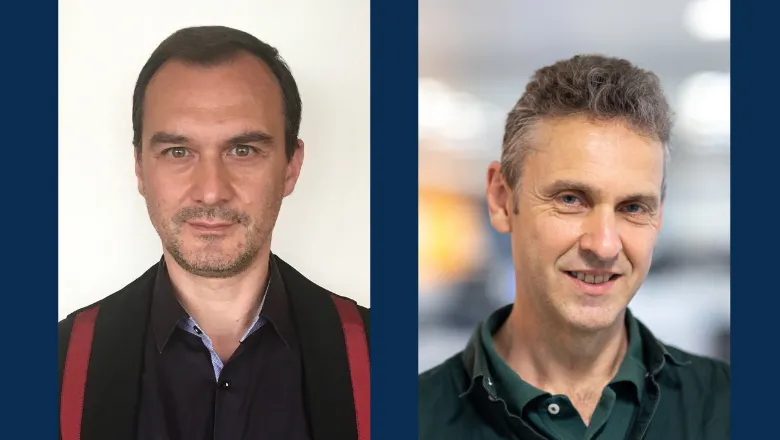Inaugural Lectures: Professors Oleg Aslanidi & Andrew King
Join us to celebrate a special milestone for our new professors and hear about their inspiring career journeys. Doors for this event will open at 16.45, with the lectures to commence at 17.00. A drinks reception will be held immediately after the lecture at 18:00.
Professor Oleg Aslanidi
Technology-driven management of cardiovascular disease: from artificial to human intelligence
Abstract
Cardiovascular disease (CVD) is the number one cause of morbidity and mortality worldwide. Advancements of computational technologies can facilitate risk predictions and treatments for common CVD types, and hence improve outcomes in large patient populations. This includes understanding the complex mechanisms of cardiac arrhythmias and resulting conditions such as stroke, and developing novel mechanism-driven treatments using computational models of the relevant diseases.
Moreover, recent advancements in artificial intelligence (AI) enable fast predictions of cardiac arrhythmias and stroke risks, as well as of suitable treatments, directly from patient data. Computational models play a crucial role in informing AI on the underlying mechanisms and explaining its decisions. The risk predictions should also lead to intelligent choices of human lifestyle to minimise the risks and ease the burden on healthcare systems.
Biography
Prof Oleg Aslanidi received BSc in Applied Mathematics (Tbilisi State University, Georgia) and PhD in Biophysics (Institute of Theoretical and Experimental Biophysics, Russia). He then worked in several research positions in the Technical University of Denmark, and Universities of Leeds and Manchester, developing computational models and treatments for the heart, uterus and pancreas. Since 2012, he has been working as a lecturer in the School of Biomedical Engineering and Imaging Sciences at King’s College London, advancing through the academic ranks until his promotion to Professor in 2024. His research at King’s is focused on improving healthcare and human lives through advanced technologies, including medical imaging, computational modelling and AI. Prof Aslanidi is also a passionate educator, and he has been successfully leading Biomedical Engineering programmes at King’s since 2017.
Professor Andrew King
Tackling AI Bias in Medical Imaging
Abstract
AI is starting to transform a wide range of areas including healthcare due to its impressive performance. However, in order to improve outcomes for all target beneficiaries, as well as having good performance it is also important that the AI tools are fair. In AI, ‘fairness’ refers to a lack of bias in performance, usually with reference to groups of subjects with common sensitive attribute values, such as race and sex.
In the context of medical imaging, this talk will introduce the subject of fairness in AI, show how AI can easily become unfair and discuss possible solutions that will help to produce AI tools which can benefit all.
Biography
Andrew King received a PhD degree in Computer Science from Warwick University in 1997 under the supervision of Professor Roland Wilson. From 2001-2005 he worked as an Assistant Professor in the Computer Science department at Mekelle University in Northern Ethiopia.
Since 2006 he has worked at King’s College London, focusing on image analysis and AI in medical imaging. His research focuses on a range of methods and clinical applications but he has a particular interest in trustworthy AI and algorithmic fairness for medical image analysis.
Search for another event



